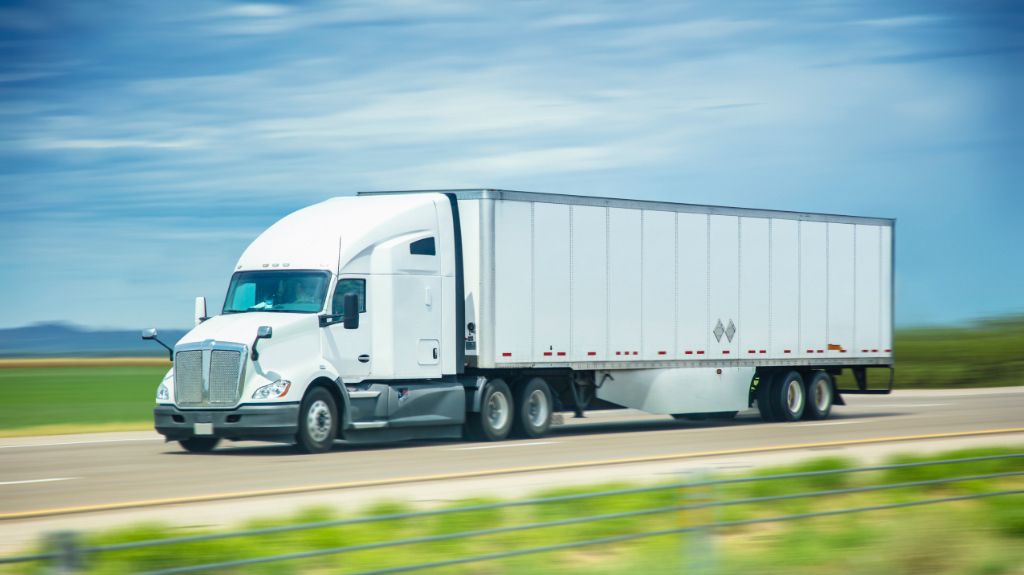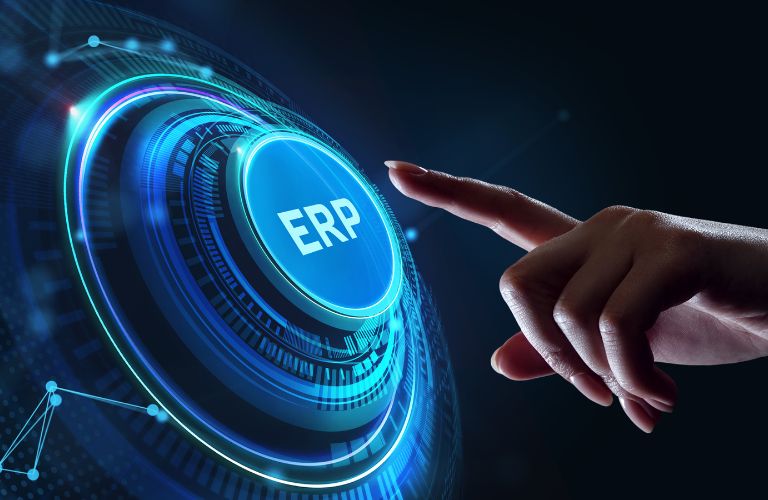What Is ERP Software in Trucking and Logistics?
Published:Sep 26, 2025
5 min. read
Technology has the potential to make day-to-day operations more efficient and more effective for trucking and freight companies – but what is the right platform for your company? Freight companies have two primary options to choose from, Enterprise Resource Planning (ERP) systems and Transportation Management Systems (TMS). Each platform provides a different suite of features and capabilities that will impact your business and many trucking companies have questions like – what is ERP software in trucking and logistics?
TenTrucks is here to help answer your questions and help you find the right solution for your freight company.

Enterprise Resource Planning systems are innovative software solutions that integrate multiple elements of your business into a centralized platform in an effort to automate daily tasks, improve collaboration, minimize data silos, and provide real-time data analysis. ERP software has the potential to improve efficiency, reduce costs, promote data-driven decision making, and improve customer satisfaction for trucking and freight companies.
Features and Functions of ERP Software
- Fleet Management solutions to include maintenance, tracking, and scheduling.
- Route Optimization capabilities to lower fuel costs and improve delivery times.
- Order Management features centralize order entry, processing, and tracking.
- Warehouse Management tools help manage inventory and streamline order processing.
- Financial Management features streamline and automate billing, invoicing, and financial reporting.
- Data and Analytics capabilities provide real-time data from a single source across multiple aspects of the business.
- Compliance Management solutions help freight companies track and adhere to compliance regulations.
Differences Between ERP Systems and Transportation Management Systems (TMS)
When faced with a choice between Enterprise Resource Planning software and Transportation Management Software, it is important to understand the key differences between each platform. This information can help you make the right decision for your trucking and freight company that will drive long-term success into the future.
Enterprise Resource Planning System
- Focus: The ERP system’s focus is a comprehensive and centralized solution that is designed to integrate and manage the basic business processes of every aspect of a trucking company, from finance and human resources to fleet and supply chain management within a single platform.
- Purpose: The purpose of an ERP platform is to create a single hub by centralizing all organizational data, which helps to eliminate redundant data entry, streamline workflows, and enable more data-driven decisions.
- Features: The key feature of an ERP platform is a shared central database that allows various aspects of the business to access and update information in real-time. This promotes consistent and accurate data flow across the entire scope of your business.
- Function: The primary function of an ERP platform is to automate and standardize business operations by collecting data from various sources that can include invoices or receipts, and using the data to inform additional processes like scheduling and reporting.
- Benefits: The most important benefit of an ERP system is complete, real-time visibility of all business operations from end to end, which provides management with the ability to identify shortcomings, provide more accurate forecasts, and respond faster to market changes.
- Limitations: The most significant limitation of this platform is the higher cost, complexity, and time needed to implement an ERP platform. The implementation of an ERP system is a major investment and financial risk that can often lead to disruption of operations.
Transportation Management System
- Focus: The primary focus of a Transportation Management System is to manage the journey of a freight shipment, from initial load planning and carrier selection to in-transit tracking and final delivery confirmation and payment.
- Purpose: The purpose of a TMS platform is to optimize and automate freight operations. The platform helps freight companies better facilitate the movement of freight from origin to destination efficiently and reliably while enhancing visibility and reducing costs.
- Features: One of the most important features of a TMS is its real-time visibility and tracking capabilities. These innovative solutions use GPS, ELD (Electronic Logging Devices), and carrier integrations to monitor the location and status of shipments in real-time.
- Functions: The primary function of a TMS is to manage transportation plans and fleet operations by giving users the ability to compare carrier rates, tender loads, generate shipping documents like Bills of Lading, and audit invoices within a centralized system.
- Benefits: A primary benefit of a TMS platform is how it reduces operational costs via route optimization, load management for Less-Than-Truckload shipments, and access to lower-cost carriers with rate comparison tools.
- Limitations: A limitation of a TMS platform is its reliance on accurate data. The system is as good as the information it receives, and if carriers don’t provide the necessary updates, the system’s real-time visibility and effectiveness will not be as valuable.
READ MORE: How To Choose the Right Transportation Management System?
Trucking and freight companies that are interested in employing technology to improve efficiency and effectiveness may be asking – what is ERP software in trucking and logistics? We hope that this comparison of ERP systems vs. Transportation Management Systems has provided some insight and helped you find the right fit for your company.
Contact TenTrucks today to schedule a demo of the TenTrucks TMS platform!